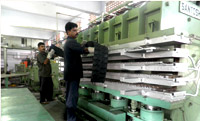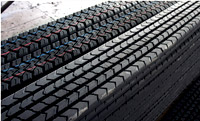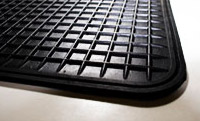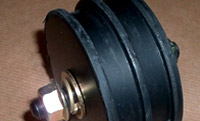MUNICIPAL SOLID WASTE MANAGEMENT (MSW), PYROLYSIS OF WASTE PLASTICS, WASTE TYRES AND WASTE AGRICULTURAL PRODUCTS & RUBBER PRODUCT DEVELOPMENT
RDT-India Offers
RDT-India introduces effective solutions for Waste Management. The technologies introduced address twin objectives; 1) Scientific Disposal of Municipal Solid Wastes (MSW) & 2) Generation of various forms of energy including electricity from Wastes. Projects were implemented in some parts of the country and many projects are being implemented. Project reports will be made available to prospective investors. The investors should see that Government of India is giving top priority for waste to energy projects. Investor must be aware that Government has announced Grant for such projects. Investors can visit RDT-India for its services on prior appointment basis.
Background
Municipal Solid Waste Management (MSWM) is a challenge today. It is high time to seek modern technologies for municipal garbage disposal. Dumping waste in dump yards creates serious issues to the environment. MSW includes commercial and residential wastes generated in municipal or notified areas in either solid or semi-solid form excluding industrial hazardous wastes. It consists of household waste, wastes from hotels and restaurants, construction and demolition debris, sanitation residue, and waste from streets.
Every year, about 55 million tones of municipal solid waste (MSW) and 38 billion liters of sewage are generated in the urban areas of India. In addition, large quantities of solid and liquid wastes are generated by industries. The yearly increase is expected to be about 5%. It is estimated that solid waste generated in small, medium and large cities and towns in India is about 0.1 kg, 0.3 – 0.4 kg and 0.5 kg per capita per day respectively. It appears that the amount of waste generated in India will increase at a per capita rate of approximately 1-1.33% annually. This has significant impacts on the amount of land needed for disposal, economic costs of collecting and transporting waste, and the environmental consequences of increased MSW generation levels.
1) Municipal Solid Waste (MSW) to Energy: Flow Chart

2) Technical Modules of the Plant
The following technical modules make the MSW sorting system efficient.
i) Automated Feeding System
ii) Multi-function Trommeis
iii) Big/Flat Objects Collection Apparatus
iv) Heavy Objects Collection Apparatus
v) Magnetic Sorter
vi) Small Light Object Collection Apparatus
vii) Pulverizer
viii) Core Separation Apparatus
ix) Organics Separator
x) Plastics Collector
3) Bio- Methanation, Organic Fertilizer & Water Treatment

4) Refused Derived Fuel (RDF)

5) Power Plant using MSW

6) Plasma Pyrolysis

7) Plasma Rock

8) Vacuum Suction Technology- Underground Waste Transportation System

9) Waste Inlet points in Underground Vacuum Suction Technology

10) Technology of Pyrolysis for Waste Plastics, Waste Tires and Wastes from Agricultural Products
* Furnace oil (Industrial Diesel/pyrolysis oil) is produced from both Plastic and Tire Wastes
* Furnace Oil is hydrocarbon oil like petroleum fuel
* Furnace oil has high calorific value
* Find applications in Cement factories, Steel industries, Generators, Boats, Ships etc.
* Furnace oil on refining converted as the real petroleum diesel
* Agricultural wastes like Coconut Shell, Cashew nut Shell, other forms of agricultural residues produce Bio-Oil which is a green fuel (Pollution Free/ cause no depletion to ozone layer)
* Bio-oils are mixture of various types of organic molecules
* Bio-Oils have moderate calorific value
11. Waste Plastic/Tire Pyrolysis













